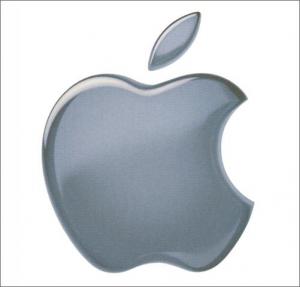Doubts Growing That Apple Will Adopt NFC in Next iPhone

Doubts are growing that Apple will include NFC in the next iPhone, with sources from some mobile operators reportedly saying Apple has told them it would not adopt the technology this year.
The most recent report, today from UK publication The Independent, cite unnamed sources from large UK telcos that Apple has told them in meetings that it would pass on the technology this year. One source reportedly said Apple is "concerned by the lack of a clear standard across the industry."
One source told NFC Times also that Apple had said to one or more U.S. mobile operators in the Isis joint venture that it would not adopt NFC this year, though that could not be confirmed immediately. An executive at France Telecom-Orange had earlier expressed doubts about an NFC-enabled iPhone at last month’s Mobile World Congress in Barcelona, and told NFC Times she was less likely to believe Apple was ready to adopt the technology at the end of the event as she was at the beginning, after talking to sources.
Apple did not include NFC in its recently launched iPad 2, although few in the NFC industry had expected it. But there has been widespread speculation that Apple would adopt NFC for the iPhone 5, which some refer to as the iPhone 4GS. Apple had filed a number of patent requests over the past couple of years involving NFC and some had believed staff additions also indicated it was ready to launch the technology.
Also, key rival Google is a strong backer of NFC, and many had thought Apple would not want to fall behind with the short-range wireless technology–which enables phones to replace contactless cards, as well as downloading information after tapping tags and sharing information peer-to-peer.
While the recent story in the UK press speculates Apple plans to adopt NFC for payments next year. The evidence has always been slim that the company intends to introduce its own payment scheme. And it has not been clear an NFC-enabled iPhone would have supported payment using NFC's card-emulation mode at all. It’s more likely that if Apple adopts NFC next year, or even this year if the recent reports are inaccurate, that it would focus the use of NFC mainly on device pairing, content sharing and service discovery.
Even without an NFC-enabled iPhone this year, industry sources have said momentum for NFC will continue. Google and such big handset makers using its Android mobile operating system as Samsung, are firmly behind the technology, as is Research in Motion, which has said most BlackBerry models will get the NFC treatment. Nokia is also adopting NFC for Symbian devices and the speculation is that it would also include NFC in the first Window Phone devices it ships.
NFC chip makers NXP Semiconductors and Inside Secure have projected handset makers will ship 50 million to 70 million NFC phones this year, with many more expected in 2012. Major wireless chipset suppliers plan to support NFC as a default in forthcoming combo chips, including Broadcom, Qualcomm and, likely, Texas Instruments. That’s in addition to major chip makers producing or developing standalone NFC chips, including NXP and Inside, along with STMicroelectronics, Samsung Semiconductor and Renesas Electronics.
It’s not clear what NFC standards Apple believes are lacking, if the reports are accurate. Standards and a certification program for NFC devices are in place for NFC tag reading and peer-to-peer communication. The standards are less firm for card emulation to ensure NFC phones work with all transit or even payment terminals. But if Apple does, in fact, pass on the technology again this year, it might believe NFC is still not mature enough.
There is also an expected battle for control of secure elements in NFC phones between mobile operators and service providers, the latter including device makers. Apple would be expected to insist on controling embedded secure elements in any NFC phones it ships in the future.












